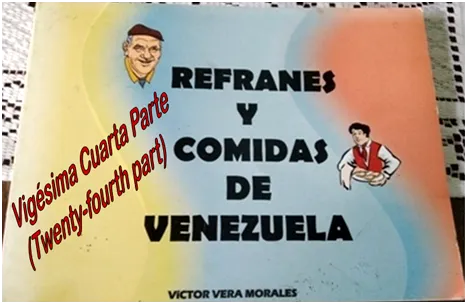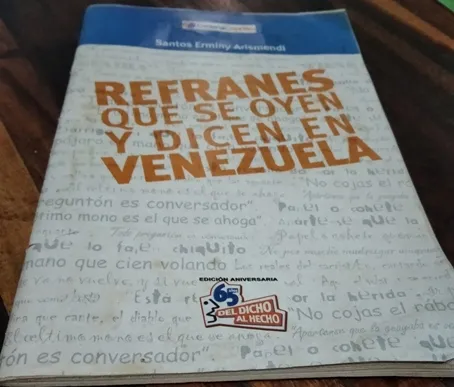

Quiere decir o referir la insignificancia de un asunto, negocio o persona; pues el refrán alude a un charco, que es una porción de agua pequeña y poco profunda, por lo cual, sería poco práctico usar una atarraya o red de pesca, para obtener beneficio de él.
Un refrán muy cierto, que pone de manifiesto cómo los celos pueden ser motivo de tormento e inquietud en una persona, en este caso, un hombre, pues nunca tendrá paz mientras está pendiente de la fidelidad de su esposa.
Dicho que se utiliza para resaltar lo riesgoso de una situación, que puede incluso llevarnos a otra situación peor, por el encierro que representa, pues en un callejón sin salida o calle ciega, no tendremos vía de escape ni salida.
Generalmente se emplea este refrán, con ánimos peyorativos o de desprecio, ya que los malos deseos de personas necias e insignificantes, no tendrán efecto ni causarán daños.
Por lo general, los cascos de mula son diferentes a los de caballos, porque tiene líneas más rectas y da la impresión de ser más cerrados. Este refrán se emplea para designar a una persona que sea muy reservada o callada con sus cosas.



Means or refers to the insignificance of a matter, business or person; because the saying refers to a puddle, which is a small and shallow portion of water, therefore, it would be impractical to use a cast net or fishing net, to obtain benefit from it.
A very true saying, which shows how jealousy can be a source of torment and anxiety in a person, in this case, a man, because he will never have peace while he is pending the fidelity of his wife.
Proverb that is used to highlight the risk of a situation, which can even lead to another worse situation, due to the confinement it represents, because in a dead end or dead end street, we will have no way of escape or exit.
Generally this saying is used, with pejorative or contemptuous spirits, since the bad wishes of foolish and insignificant people will not have effect or cause damage.
Mule hooves are generally different from horse hooves in that they have straighter lines and give the impression of being more closed. This saying is used to designate a person who is very reserved or quiet with his things.

Dear readers, below I place the links of the first twenty three posts, in case you want to read them:
Víctor Vera Morales. (Agosto 2004). Refranes y Comidas de Venezuela. Editado por el Instituto Municipal de Publicaciones de la Alcaldía de Caracas.
Santos Erminy Arismendi. (2006). Refranes que se oyen y dicen en Venezuela. Cadena Capriles, Caracas. Venezuela.
- Fotos de mi autoría, tomada con un teléfono REDMI 8A, intervenida con WordArt / Photos of my authorship, taken with a REDMI 8A telephone, intervened with WordArt.
- Los diseños incluidos en esta publicación, han sido elaborados por mi persona con la aplicación CANVA / The designs included in this publication has been made by me with the CANVA application.
In the event that it is required to use the content or images of this post and my other publications, I would be grateful if my authorship (Fabiola Martínez) was made and the corresponding link was cited. Thank you.

 CommunityIIDiscord
CommunityIIDiscord